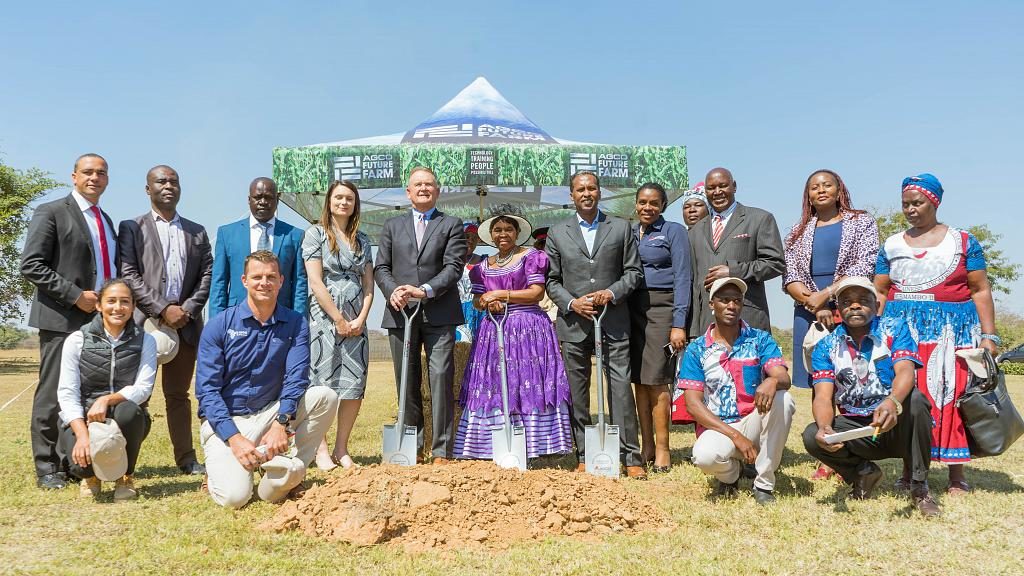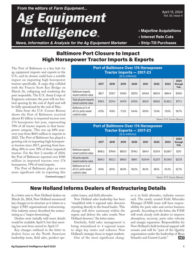AGCO has revealed plans for further development of the Future Farm project in Zambia. This was announced on July 31, 2019, at the 150 hectares (371 acres) farm outside Lusaka by Gary Collar, AGCO senior vice president and general manager, Asia Pacific and Africa (APA) and the Future Farm senior manager, Kalongo Chitengi, during a ground breaking ceremony.
Upgrades for Phase II will include the construction of student and staff accommodation with 24 rooms, communal amenities such as a canteen that sits over 80 people and an Insaka homestead — a traditional complex of grass gazebos with a central court yard to encourage interactive learning. The second phase of the Future farm will also include upgrades to the existing road and farm infrastructure and digitizing the mechanization and agronomy training material to ensure that this knowledge is accessible even to farmers in remote parts of the continent.
This is not AGCO’s first time investing in the African continent; they recently opened a new office in Morocco and previously invested $100 million in 2012 as part of a 3 year investment plan.
“When we conceptualized the Future Farm, our aim was to be a catalyst in the development of a sustainable and prosperous agricultural industry across the continent, with innovative solutions built around the needs of African farmers,” explained Collar. “To achieve this, we are designing our solutions with Africa in mind and ensuring that we can support our products and customers, locally.”
While a project such as the Future Farm is committed to advancing African farmers to be owners of profitable agribusinesses, AGCO understands that the private sector cannot achieve a sustainable agricultural sector in Africa alone. There are other constraints slowing the speed of progress in Africa that need to be tackled in parallel with local governments.
“African governments must look at agriculture beyond the development agenda, but rather as a profitable industry that can boost the region’s economy,” explained Nuradin Osman, AGCO vice president and general manager, Africa.
The training facility was first launched in 2015 with an initial investment of $9 million and is designed to demonstrate the value of mechanization and best agronomy practices for both small and large commercial farming operations.





Post a comment
Report Abusive Comment